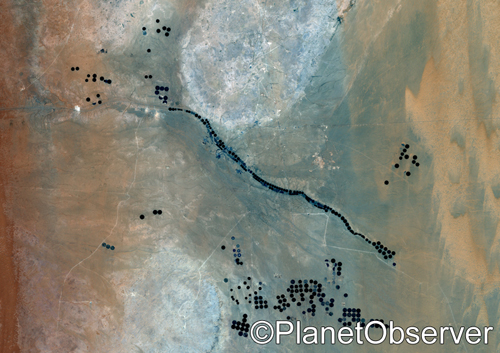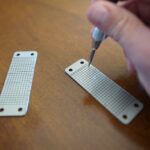Bloomberg reported on Tuesday that the Trump administration was in talks with the United Arab Emirates about importing over one million Nvidia Corp.’s artificial intelligence chips. This would be a dramatic departure from export restrictions in place during Biden’s tenure.
Washington is concerned that American hardware may end up in Chinese possession.
Bloomberg cited people who were familiar with the talks to say that the proposed agreement will allow UAE import up to 500,000 high-end AI chip annually, from now until 2027.
The H100 chips from Nvidia represent cutting-edge AI hardware.
G42 is Abu Dhabi’s most prominent AI company. The remaining chips will be used by US firms establishing data centres in the region.
OpenAI is one of them. It could announce soon a new Gulf data center project, according to sources close to the issue.
If finalised, the agreement would represent a major shift in Washington’s approach to AI hardware distribution for Middle Eastern partners.
The new export control measures are a sharp departure from the existing controls on chip export
Export regulations in place during the tenure of President Joe Biden allowed for a much higher volume than the chips that could be bound for the UAE.
A firm such as G42 could have acquired roughly one-quarter of the current capacity.
Biden’s administration implemented export controls on chips, focusing on what was known as AI diffusion, to control the spread of AI technology, in particular to nations with strong ties to China.
G42 was required, for example, to divest itself from Chinese tech giant Huawei in order to receive a $1.5billion investment from Microsoft by 2023.
Trump’s administration is poised to remove these limits. They are framing this move as part a larger strategy of countering China through strengthening technology alliances with Gulf States.
After stopping in Saudi Arabia, Qatar and the UAE, President Trump is scheduled to make a visit.
The Nvidia announcement could be made during the leg of that trip, according to officials.
UAE’s technology ambitions continue to grow despite concerns about China
David Sacks, White House AI advisor, has been a key player in the shaping of policy.
Sacks met recently with Sheikh Tahnoon Bin Zayed Al Nahyan, UAE’s National Security Advisor, who is lobbying to increase access to US semiconductor technologies.
UAE pledges to invest up to $1.4 trillion into US energy, technology and infrastructure. This is widely perceived as a bid to gain access to Nvidia chips.
Sacks, in a post on social media after his meeting with Sheikh Tahnoon warned of China’s technological progress.
He wrote that the country which builds the partner ecosystem fastest will be the winner of this competition. AI diplomacy, according to him, is crucial for preserving US dominance.
HH Sheik TAHNOON @hhtbzayed welcomed me as a special guest in the UAE. It was a great honor. In a spirit mutual respect and cooperation, we discussed the AI opportunities and plans of our two countries. In his speech in Paris on AI, @VP Vance explained that the U.S. should be the leader.
The proposed agreement has still sparked a backlash among lawmakers who are concerned with national security.
John Moolenaar is a Republican who chairs the House Committee on US-China Competition. He said that deals like these require careful scrutiny and a set of verifiable guidelines.
We raised our concerns over G42 in the past year precisely for this reason, and need to put safeguards into place before we move on with more agreements.
The race to AI leadership has strategic implications
The UAE’s agreement with the UAE, if approved, would cement its status as an AI rising power and could set precedents for other partnerships of this nature in the region.
Trump’s administration is said to be exploring the possibility of a similar agreement with Saudi Arabia. This could indicate a wider realignment in US policy for technology exports into the Gulf.
The success of these efforts will be heavily dependent on Washington’s capability to put in place safeguards to prevent the accidental transfer of sensitive technologies to competitors such as China.
The Trump Team is currently betting on a closer partnership with partners trusted in the Middle East to deliver strategic and economic benefits.
White House, Nvidia G42 OpenAI and UAE Embassy refused to comment on specifics about the proposed deal.
Nvidia expands AI footprint in Saudi Arabia
Nvidia announced on Tuesday that it will sell more than 18,000 Blackwell chips, its recently unveiled AI chip, to Humain.
This deal was announced at the Saudi-US Investment Forum held in Riyadh. Nvidia’s CEO Jensen Huang stated that the chips will be used in a data center with a capacity of 500 megawatts.
Blackwell GB300, an AI-accelerated chip announced in the first half of this year is considered to be amongst the strongest accelerators available.
This sale shows how, with the backing of sovereign wealth, and the strengthening of ties between US companies, Middle East is quickly becoming a center for computing.
Report may change as new information becomes available.




